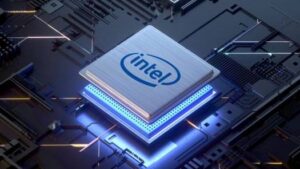Why Processor Generation Matters More Than Base Speed When Buying a Laptop

Why Processor Generation Matters More Than Base Speed When Buying a Laptop (Processor generation vs base speed)

When buying a laptop in Nigeria or anywhere else, many people fall into a common trap — they judge the laptop’s performance solely by the number they see next to the processor, such as “2.6GHz” or “1.8GHz.” In fact, one of the most misunderstood specs in the tech world is processor speed. That figure you see — the base GHz — doesn’t tell the full story. What matters more today is the processor generation, not just the base speed.
In this post, we’ll break down what base speed means, why newer generation processors (even those with seemingly “lower” GHz) outperform older ones, and what you should really focus on when buying a laptop. If you’ve ever felt scammed because your laptop shows “1.0GHz,” read this article before jumping to conclusions.
Understanding Processor Base Speed
The processor base speed — often measured in GHz (Gigahertz) — is the default clock speed at which your CPU operates under normal, non-intensive tasks. For example, a base speed of 2.5GHz means the CPU runs 2.5 billion cycles per second.
But here’s the catch: this number alone does NOT define how fast or powerful the laptop is. Modern processors come with features like Turbo Boost, Efficiency Cores, Performance Cores, Hyper-Threading, and other enhancements that impact real-world performance far more than just base speed.
What Is Processor Generation?
The term “processor generation” refers to the version of the CPU architecture. For instance, Intel Core i5 8th Gen is older than Intel Core i5 13th Gen. Each new generation comes with architectural improvements, better power management, smarter multitasking, and enhanced security features.
Even if a 13th Gen processor has a base speed of 1.2GHz and an 8th Gen processor shows 2.6GHz, the newer one is usually more powerful, faster, and more efficient in most tasks.
Processor Generation vs Base Speed: What Matters More?
Let’s compare:
- Intel Core i5 8th Gen @ 2.6GHz — Dual-core or quad-core, older architecture, less efficient, weaker integrated graphics.
- Intel Core i5 13th Gen @ 1.0GHz base — Often 8-12 cores, hybrid architecture (P-cores + E-cores), smart workload handling, superior performance in benchmarks.
The higher generation chip will almost always win in performance, battery efficiency, thermal handling, and multitasking.
Why Do Newer CPUs Show Lower Base Speeds?
Newer generation processors, especially Intel’s 12th and 13th Gen chips, use a mix of Performance cores (P-cores) and Efficiency cores (E-cores). This architecture allows the CPU to dynamically increase or decrease clock speed based on what you’re doing — saving power and reducing heat when you’re just browsing or typing, and ramping up for heavy tasks like video editing or gaming.
This explains why newer laptops sometimes display “1.0GHz” or “1.2GHz” as their base speed — it’s the idle/default speed, not the full potential.
Common Misconceptions When Buying Laptops Online
Here’s where many buyers — especially in Nigeria — go wrong:
- They see a laptop with 1.1GHz and assume it’s slow.
- They believe a 2.6GHz 7th Gen is better than a 1.0GHz 13th Gen.
- They feel they’ve been scammed if the processor speed is “low.”
In reality, the newer processor is likely to be better in every way: performance, battery life, thermal management, and future-proofing.
What You Should Focus on Instead
When shopping for a laptop, especially from online vendors or UK-used laptop dealers, look at the following:
- Processor generation (e.g., Intel Core i5 12th Gen or AMD Ryzen 5 5600U)
- Number of cores and threads
- Turbo Boost or Max Clock Speed
- RAM (minimum 8GB recommended for multitasking)
- SSD storage (faster than HDDs)
- Battery health and usage cycles
Real-World Example
Let’s say you’re comparing two laptops:
- Laptop A: Intel Core i5 7th Gen, 2.5GHz, 4 cores
- Laptop B: Intel Core i5 13th Gen, 1.0GHz base, 10 cores (6 performance + 4 efficiency)
Although Laptop A has a higher base speed, Laptop B will:
- Open apps faster
- Handle multitasking better
- Give you longer battery life
- Generate less heat
That’s the power of newer processor generation vs base speed.
Join Over 5,000 Smart Buyers Choosing Performance Over Myths
At Jumuah Industrial Company Limited, we educate every customer before they buy. No gimmicks. No confusion. Just laptops that truly deliver.
- All our laptops are thoroughly tested.
- We explain processor specs clearly before you pay.
- We offer laptops from Intel 8th Gen up to 13th Gen at affordable prices.
Final Thoughts
When it comes to processor generation vs base speed, always choose the newer generation. A 1.0GHz 14th Gen chip will outperform an older 2.6GHz processor in most real-world use cases.
Don’t be misled by outdated myths. A higher base GHz doesn’t mean better performance. Instead, consider the generation, architecture, and core structure. That’s how you get true value for your money when buying a laptop in today’s world.
So the next time someone tells you “this one is just 1.1GHz,” ask them what generation it is — and school them with the facts you just learned here.




